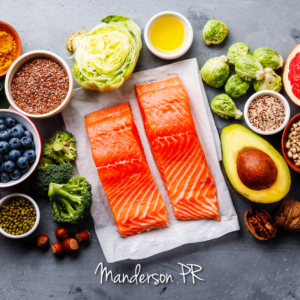The truth of the Gut-Brain relationship is accurate, and every bite you put into your body can impact your mood in subtle and not-so-subtle ways. So you better understand how diet affects your gut microbiome and how you feel.
We all have good days and bad days — it’s normal. I’m not a doctor, nor do I play one on television, so the advice I share is from personal observations and the adjustments I’ve made during my food journey.
If you’re like me and have started noticing the difference between certain foods you eat and when you choose to eat them and how that changes your mood, you should pay more attention and consider altering those choices.
Interestingly, much of one’s mood swings can be specific to foods that influence gut bacteria. While everyone is unique, and not all foods will affect everyone’s gut health the same way, it’s worth paying attention to your food choices. The best way to understand how your diet influences your mood is to get specific about foods and mood symptoms, take notes on how you feel, and make adjustments.
Worst Foods for Your Mood
Eating these foods most of the time can promote chronic inflammation, which elevates the risk of having a poor mood:
• Refined grains, such as white rice, pasta, bread, crackers, and snack foods
• Alcohol
• Baked sweets and pastries
• Added sugar
Best Foods for Your Mood
Gut- and mood-promoting foods provide nutrients like fiber, unsaturated fats, and plant-based protein. For example, researchers have found that adherence to a Mediterranean-style diet is associated with fewer depressive symptoms.
Prioritizing healthier foods allow for more gut bacteria diversity and better mood outcomes.
• Whole grains, like whole-wheat bread and pasta, brown rice, quinoa, amaranth, millet, farro, and barley
• Vegetables like broccoli, cauliflower, leafy greens, peppers, sweet potatoes, onions, garlic, squash, and mushrooms
• Flavonol and antioxidant-rich dark chocolate and cocoa
• Fermented foods that contain probiotics and prebiotics, such as tempeh, miso, natto, kimchi, kombucha, and sauerkraut
• Legumes, including beans, peas, and lentils
• Fruits, like berries, melon, bananas, apples, citrus, and grapes
Be specific about which foods influence your mood changes, keep notes on the types of food you eat and how you feel, and speak to your healthcare provider if you think further support or testing is warranted.




